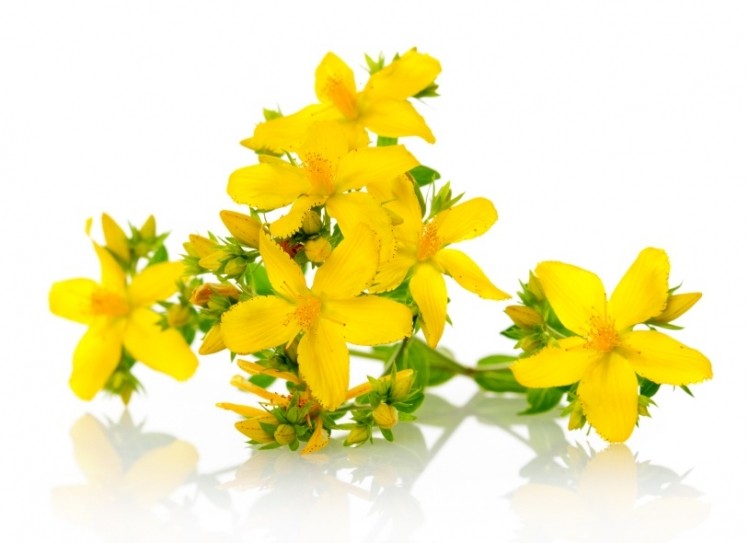AHPA, ABC oppose call for change of regulatory status for St. John's wort

The group, called Pharmacists Planning Service's (PPSI) , has requested that FDA change the status of St. John's wort (hypericum perforatum) from herbal dietary supplement to "behind pharmacy counter status.”
"This petition exhibits a remarkable misunderstanding of the laws in the United States that govern drugs and dietary supplements," said AHPA President Michael McGuffin. "AHPA believes that ready access to a broad range of dietary supplements by informed consumers is always preferable to creating restrictions to access."
St. John’s wort is most commonly used for depression and conditions that sometimes go along with depression such as anxiety, tiredness, loss of appetite and trouble sleeping. There is some strong scientific evidence that it is effective for mild to moderate depression.
The reasons PPSI gave on its petition dated Jan. 9 for requesting the change are what it says are deaths from drug interactions; its "dangerous" interaction with prescription drugs; and FDA's label warnings about the herb on two new Hepatitis C virus products, Boceprevir and Telaprevir.
Industry insiders say that St. John’s wort is already amply covered by FDA-mandated warning labels.
“The agency has had plenty of time to consider St. John’s wort,” Stephen Dentali PhD, chief science officer of AHPA told NutraIngredients-USA. “(Does PPSI) have a solution looking for a problem?”
It’s well known that St. John’s wort can work to speed up the metabolism of number of drugs, Dentali said, including birth control pills. In those cases, having St. John’s wort in a patient’s bloodstream could mean that the patient wouldn’t achieve an effective dose of the prescribed medication even if they took it in accord with label directions, hence the warning labels about the herb on those particular drugs.
"We believe that any such an initiative should first be certain to distinguish between SJW products that are low in hyperforin, which do not show any interactions with conventional pharmaceutical drugs, with other SJW products that contain levels of hyperforin in levels that are conducive to the products' likelihood to interact," said Mark Blumenthal, executive director of the American Botanical Council.
Better than grapefruit juice
Dentali noted that drug-on-drug interactions are common, and warnings about potential interactions (such as the warnings about alcohol use with a wide variety of drugs) are a familiar part of drug labels. He said St. John’s wort is one of two common plant-based natural products that have shown significant drug interactions. The other is grapefruit juice, which generally has the opposite effect, boosting the bioavailability of certain drugs leading to fears of an overdose.
“The warnings about St. John’s wort are handled better than grapefruit juice. There are no warning labels on grapefruit juice. Grapefruit juice isn’t behind the pharmacist’s counter,” he said.
McGuffin noted that since 2000, AHPA has had in place a guidance policy that recommends that SJW products be labeled with the following statement:
“Notice: Do not use this product while taking any prescription drug(s) without the advice of your prescribing physician. Avoid excessive exposure to UV irradiation (e.g., sunlight; tanning) when using this product.”
Blumenthal said that behind the counter status wasn't necessary for St. John's wort, especially in light of the numerous drugs out in the aisles that have warning information on their labels.
"If the products are adequately labeled with appropriate cautions on the label, then at least theoretically, such placement should not be necessary. We live in a society in which numerous over-the-counter (OTC) medicines are liberally sold in drugstores, grocery stores, convenience stores, hotel lobbies, and even in vending machines (and, of course, on the Internet) — and many of these OTC drugs are not trivial with respect to their potential toxicity and/or potential for an adverse effect — e.g., particularly for long-term use. However, these medicines are allowed to be sold in such a manner based on the notion that consumers should always "take only as directed" -- I.e., that they would read and comply with directions, cautions, and/or warnings on the label," he said.
And, Blumenthal added, St. John's wort's benefits are such that it would be a disservice to consumers to limit access to the herb.
"The benefit of several SJW preparations for modulating mild-to-moderate depression has been confirmed in a Cochrane Library meta-analysis on 29 of the most high-quality clinical trials, so, yes, for numerous SJW products, the benefits are quite well established," he said. Blumenthal noted further that the manufacturers of such products, "have a responsibility to ensure that the potential herb-drug interaction risk is clearly stipulated on the products' labels."
Pharmacist: Fear is overblown
Not all pharmacists share the non-profit group’s alarmist stance. Phil Berce, a pharmacist who owns Good Value Pharmacy, a 3-store chain in Kenosha, WI, is one who doesn’t. Selling nutraceuticals and advising customers on their use forms a significant part of Berce’s business, so he’s familiar with the issues surrounding the herb.
Berce is not a bit fan of St. John’s wort per se. “It’s one of those products I carry because customers ask for it,” he said. Nevertheless he’s not overly worried about possible harm from the use of the herb as far as drug interactions are concerned. “I think the fear is overblown,” he said.
Officials from PPSI could not be reached for comment.

















